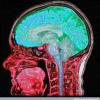I remember reading something about piracetam having beneficial effects on membrane fluidity, which depends on available liquid fats. Does anybody have any info on this?
Keep in mind that fish oil is a fat, which is a macronutrient and doses like 5 grams and under daily are likely to be insignificant.
Piracetam: novelty in a unique mode of action.
Müller WE, Eckert GP, Eckert A.
Department of Pharmacology, Biocenter University of Frankfurt, Germany.
Abstract
Extensive research of the recent years has demonstrated that piracetam is effective in the treatment of cognitive decline in aging and dementia. It is usually much more active in situations of impaired brain function. Accordingly, its mechanism of action has been associated with neurochemical deficits of the aged brain relevant to cognitive dysfunctions. Since many of these neurochemical deficits depend on changes of membrane properties, including fluidity, it is of special importance that piracetam not only modifies membrane properties by interacting with the polar head moieties of the phospholipid bilayer, but also that this effect is more pronounced in membranes of aged as opposed to young animal and human brains, and that this mechanism also has specific relevance for brain membranes of Alzheimer's disease patients. Altering membrane properties might also be involved in vascular effects of piracetam such as improved erythrocyte deformability and normalization of hyperactive platelet aggregation. This novel mechanism of piracetam thus combines a rather non-specific physico-chemical mode of action with the pharmacological and clinical experience with this unique drug - effects are always much more pronounced when function is impaired.
http://www.ncbi.nlm.nih.gov/pubmed/10338102
Effects of piracetam on membrane fluidity in the aged mouse, rat, and human brain
References and further reading may be available for this article. To view references and further reading you must purchase this article.
Walter E. Müllera, Corresponding Author Contact Information, Sabrina Kocha, Klaus Scheuera, Angelika Rostockb and Reni Bartschb
a Department of Psychopharmacology, Central Institute of Mental Health, D-68159, Mannheim, Germany
b Pharmacological Research, Arzneimittelwerk Dresden GmbH, Meissner Str. 191, D-01435, Radebeul, Germany
Received 19 February 1996;
accepted 28 May 1996. ;
Available online 12 December 1997.
Abstract
In vitro preincubation of brain membranes of aged mice wirh piracetam (0.1–1.0 mmol/L) enhanced membrane fluidity, as indicated by decreased anisotropy of the membrane-bound fluorescence probe 1,6-diphenyl-1,3,5-hexatriene (DPH). Piracetam had similar in vitro effects on brain membranes of aged rats and humans, but it did not alter brain membrane fluidity in young mice. Chronic treatment of young and aged rats with piracetam (300 mg/kg once daily) significantly increased membrane fluidity in some brain regions of the aged animals, but had no measurable effect on membrane fluidity in the young rats. The same treatment significantly improved active avoidance learning in the aged rats only. It is suggested that some of the pharmacological properties of piracetam can be explained by its effects on membrane fluidity.
http://www.sciencedirect.com/science?_ob=ArticleURL&_udi=B6T4P-3RHM9JM-M&_user=10&_coverDate=01%2F24%2F1997&_rdoc=1&_fmt=high&_orig=search&_origin=search&_sort=d&_docanchor=&view=c&_searchStrId=1619228522&_rerunOrigin=scholar.google&_acct=C000050221&_version=1&_urlVersion=0&_userid=10&md5=7712e7153836d37b0c50c266a3fb9103&searchtype=a
Piracetam-induced changes to membrane physical properties : A combined approach by 31P nuclear magnetic resonance and conformational analysis
References and further reading may be available for this article. To view references and further reading you must purchase this article.
Jacques Peuvota, André Schanckb, Michel Deleersc and Robert Brasseurd, Corresponding Author Contact Information
a Département médical UCB s.a. B-1420-, Braine-l'Alleud, Belgique
b Laboratoire de Chimie Physique et de Cristallographie and Research Center for Advanced Materials, Université Catholique de Louvain, B-1348-, Louvain-la-Neuve, Belgique
c Secteur Pharmaceutique, UCB s.a., B-1420-, Braine-l'Alleud, Belgique
d Centre de Biophysique Moléculaire Numérique, Faculté des Sciences Agronomiques de Gembloux, Passage des Déportés no. 2, B-5030-, Gembloux, Belgique
Received 1 December 1994;
accepted 17 May 1995. ;
Available online 29 March 2000.
Abstract
Piracetam, Nootropil® (2-oxo-l-pyrrolidine acetamide), is a drug promoting erythrocyte deformability. To establish the mode of action of this compound, we have investigated its influence on the organization of model phospholipid membranes. 31P NMR data show that the drug induces a structural modification in liposomes made of phosphatidylcholine and phosphatidylethanolamine. Our conformational analysis results have allowed the interpretation of the effect of piracetam on these model membranes: the specific interaction between the drug molecules and the phosphate headgroups induces a new organization of the lipids favouring formation of mobile drug-phospholipid complexes that exhibit an isotropic-type signal in the 31P NMR spectra.
http://www.sciencedirect.com/science?_ob=ArticleURL&_udi=B6T4P-3YXBT50-3W&_user=10&_coverDate=10%2F12%2F1995&_rdoc=1&_fmt=high&_orig=search&_origin=search&_sort=d&_docanchor=&view=c&_searchStrId=1619227999&_rerunOrigin=scholar.google&_acct=C000050221&_version=1&_urlVersion=0&_userid=10&md5=d126c39aeffaae8d1248910437bba2bd&searchtype=a
Effects of Dietary Fish Oil Supplementation on the Phospholipid Composition and Fluidity of Cell Membranes from Human Volunteers
Background: Membrane fluidity is an important aspect of cellular physiology which may be manipulated by diet. Methods: We studied the effect of dietary fish oil on the membrane composition of erythrocytes and cheek cells, and on membrane fluidity of erythrocytes as assessed by fluorescence recovery after photobleaching (FRAP). Healthy volunteers received a daily supplement of fish oil (930 mg EPA, 630 mg DHA) for 42 days. Results: The intervention reduced the ratio of n-6 to total fatty acid in the phospholipid fraction of erythroctye membranes but the n-3 fraction remained stable and the ratio of cholesterol to phospholipid increased. The level of EPA and DHA in cheek cells increased significantly during the intervention period. The mean diffusion coefficient of the fluorescent probe in erythrocyte membranes increased from 7.2 ± 0.7 × 10–9 cm2/s at the start to 9.8 ± 0.5 × 10–9 cm2/s after 21 days. Membrane fluidity remained higher than the initial value 42 days after withdrawal of the supplement. Fish oil also reduced platelet aggregation in response to ADP but there was no effect on plasma lipid profiles. Conclusion: We conclude that n-3 fatty acids influence erythrocyte membrane composition at relatively low levels of supplementation by a mechanism which does not necessarily involve an increase in the level of EPA or DHA present in the membrane.
http://content.karger.com/ProdukteDB/produkte.asp?Aktion=ShowAbstract&ProduktNr=223977&Ausgabe=224616&ArtikelNr=12797
Piracetam Improves Cognitive Performance by Restoring Neurochemical Deficits of the Aged Rat Brain
K. Scheuer1, A. Rostock2, R. Bartsch2, W. E. Müller1, 3
1 Department of Psychopharmacology, Central Institute of Mental Health Mannheim, Germany
2 Pharmacological Research, AWD, Radebeul, Germany
3 Department of Pharmacology, Biocenter University of Frankfurt, Germany
Abstract
In order to test the hypothesis that piracetam improves cognitive functions by restoring biochemical deficits of the aging brain, we investigated the effects of piracetam treatment (300 mg/kg daily for 6 weeks) on the active avoidance performance of young and aged rats. After testing, the rats were killed and membrane fluidity and NMDA as well muscarinic cholinergic receptor densities were determined in the frontal cortex, the hippocampus, the striatum, as well as the cerebellum. Piracetam treatment improved active avoidance learning in the aged rats only and elevated membrane fluidity in all brain regions except the cerebellum in the aged animals. Moreover, we observed a positive effect of piracetam treatment on NMDA receptor density in the hippocampus and on muscarinic cholinergic receptor densities in the frontal cortex and the striatum and to a lesser extent in the hippocampus. Again, these effects were only observed in aged animals. Discrimination analysis indicated that piracetam effects on membrane fluidity in the frontal cortex, the hippocampus, and the striatum and its effects on NMDA densities in the hippocampus might be involved in its positive effects on cognitive performance.
https://www.thieme-connect.com/ejournals/abstract/pharmaco/doi/10.1055/s-2007-979231
The combination of Piracetam and high-dose Fish oil might increase/improve the membrane fluidity and Lipid bilayer in young subjects and subsequently, significantly improve cognition in healthy subjects.
DHA plays a crucial role in membrane order (membrane fluidity), which can influence the function of membrane receptors such as rhodopsin (13, 14); regulation of membrane-bound enzymes (Na/K-dependent ATPase) (15); dopaminergic and serotoninergic neurotransmission (16); signal transduction via effects on inositol phosphates, diacylglycerol, and protein kinase C (17); regulation of the synthesis of eicosanoids derived from arachidonic acid (AA) (10); regulation of gene expression (18–20); regulation of phosphatidylserine levels (21); protection of neural cells from apoptotic death (22, 25); stimulation of neurite outgrowth in PC12 cells (23, 24); selective accumulation of DHA by synaptic growth cones during neuronal development (23, 24); regulation of nerve growth factor (29); and regulation of neuron size (26, 27).
http://www.pnas.org/content/100/4/1580.full
Edited by Ichoose2live, 25 January 2011 - 03:17 PM.



















































